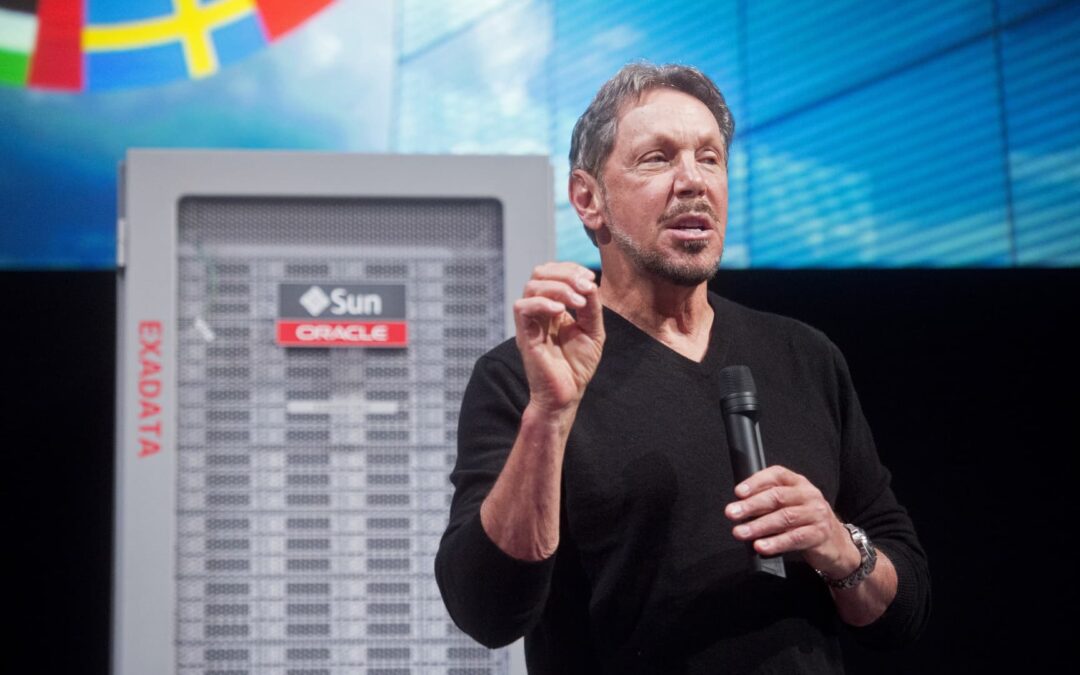Oracle Corp Chief Executive Larry Ellison during a launch event at the company’s headquarters in Redwood Shores, California June 10, 2014.
Noah Berger | Reuters
Oracle‘s massive growth trajectory for cloud infrastructure is lifting all boats.
The cloud giant forecasted skyrocketing sales to $114 billion in the company’s fiscal 2029, signalling demand for artificial intelligence processing will remain high over the next few years, and will require Oracle to build out new data centers.
“The guide for a 14x of Oracle’s cloud infra segment in 5 years, mostly from GPU cloud demand, and the guide for capex of $35b in FY26 is bullish Nvidia, other AI hardware suppliers and the eco-system of partners building and financing Oracle’s GPU data centers,” wrote UBS analyst Karl Keirstead in a note on Wednesday.
As Oracle shares roared 40% higher on Wednesday, companies that provide the chips and systems for its buildout — or even compete with it — are seeing their stocks boom.
Nvidia, which says its computers and chips comprise about 70% of the total budget for an AI data center, climbed 4%.
Taiwan Semiconductor Manufacturing Co., which makes chips for Nvidia and others in AI, rose over 4% during trading on Wednesday after it said sales increased by 34% in August.
Broadcom, which makes networking gear to tie Nvidia chips together and plays a key role in custom AI chips for companies like Google, climbed 9%.
AMD is the main Nvidia competitor for graphics processors used for AI, although its chips currently only have a small fraction of the market. Its shares rose 3%.
Micron, which makes memory used in Nvidia’s most advanced chips, rose 4%.
Super Micro and Dell, which both make complete server systems around Nvidia’s chips, each rose 4%.
“The vast majority of our CapEx investments are for revenue-generating equipment that is going into the data centers,” Oracle’s Safra Catz said on Tuesday.
The biggest gainer was one of Oracle’s so-called neo-cloud competitors, CoreWeave, which rose 20% on continued exuberance around insatiable demand for AI compute. Neo-clouds compete against Google, Amazon, and Microsoft for cloud customers by focusing on offering better access and tools for artificial intelligence.









